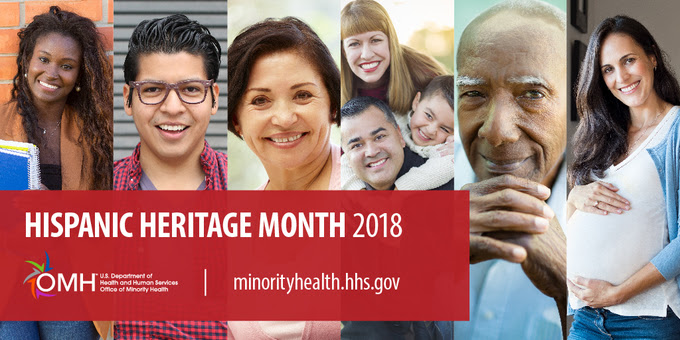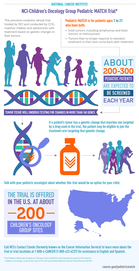September 2018  September is National Sickle Cell Awareness Month. Sickle cell disease (SCD) is a group of inherited red blood disorders. SCD affects millions globally and disproportionately impacts certain racial and ethnic populations including African Americans, Latinos and people of Middle Eastern, Indian, Asian and Mediterranean descent. According to the Centers for Disease Control and Prevention (CDC), it is estimated that SCD affects approximately 100,000 individuals in the U.S. The U.S. Department of Health and Human Services (HHS) is committed to reducing the burden of this disease. During National Sickle Cell Awareness Month 2018, HHS will focus its efforts on helping to raise awareness about the importance of sickle cell disease research and treatment. Federal, state, local, tribal and territorial partners, people living with SCD, and family and caregivers are encouraged to visit the National Sickle Cell Awareness Month webpage for more information about SCD, downloadable social media graphics, resources and events occurring throughout the month of September.  Hispanic Heritage Month (HHM) takes place every year from September 15 to October 15. HHM is a time to celebrate the histories, cultures and contributions of the Latino community in the U.S., raise awareness about Hispanic/Latino health gaps, and provide a platform for national Hispanic/Latino health organizations to discuss the challenges and opportunities in helping end health disparities. This year, the HHS Office of Minority Health (OMH) will focus its efforts on building awareness about health disparities in the Hispanic/Latino community and highlighting the importance of Hispanic/Latino community participation in research studies to help scientists and medical professionals better treat diseases. Visit the Hispanic Heritage Month observance page for more information, resources and events occurring during the observance period.
 According to the Centers for Disease Control and Prevention (CDC), childhood obesity affects about 13.7 million children and adolescents in the U.S. While childhood obesity affects all groups, it disproportionately affects certain racial and ethnic groups.
Racial and ethnic minority children often live in communities where they face challenges in access to affordable, healthy food or safe places to be physically active, which contribute to higher obesity rates. National Childhood Obesity Awareness Month will focus on raising awareness about the childhood obesity disparity and promoting healthy lifestyle choices for every member of the family. For access to resources, information and downloadable graphics, please visit the OMH childhood obesity webpage. |
 September is Childhood Cancer Awareness Month, a time to shine a spotlight on the types of cancer that largely affect children. According to the National Cancer Institute (NCI) at the National Institutes of Health (NIH), an estimated 10,270 new cases of cancer were diagnosed among children from birth to 14 years, and about 1,190 children are expected to die from the disease in 2017. Although childhood cancer death rates have declined, cancer remains the leading cause of death from disease among children. For information about the types of childhood cancers, treatment options available, clinical trials and research, please visit NCI's Childhood Cancer website. |
 Maintaining a healthy lifestyle throughout the course of life is extremely important in managing health conditions and understanding prescriptions. It is understood that people in the U.S. are living longer, and many seniors lead active and healthy lives. During Healthy Aging Month, seniors are encouraged to: - Eat a balanced diet
- Keep your mind and body active
- Don't smoke
- Get regular checkups
- Practice safety habits to avoid accidents and prevent falls
Visit the U.S. Department of Health and Human Services’ (HHS) Healthy Aging resource website for information about staying active, remaining active in the community, nutrition and more. |
 The National Institutes of Health’s All of Us Research Program is a historic effort to gather data from one million or more people living in the U.S. to accelerate research and improve health. The mission of the All of Us Research Program is to speed up health breakthroughs by collecting health information from one million participants. The information collected will be used for future health studies to improve health. Visit the All of Us Research Program website to learn more about the valiant efforts of NIH research and how you can participate. |
 The Office of Minority Health participates in several national conferences to increase awareness about health disparities among ethnic racial minority groups, promote the importance of achieving health equity for all and share resources that health professionals and advocates can use in the organizations and communities.
We encourage you to visit the OMH booth if you are attending the following conferences:
September 6-9, 2018 Orlando, FL
|
 The Office of Minority Health Resource Center - Knowledge Center has developed an extensive collection of documents specifically related to the health of minority populations.
The online catalog provides a targeted collection on the topic of sickle cell disease for both consumers and health professionals. Click here to see the most recent publications on sickle cell disease. Click here to gain access to the Knowledge Center’s Online Catalog to search all documents entered into the database or to request additional information. |
|








No hay comentarios:
Publicar un comentario